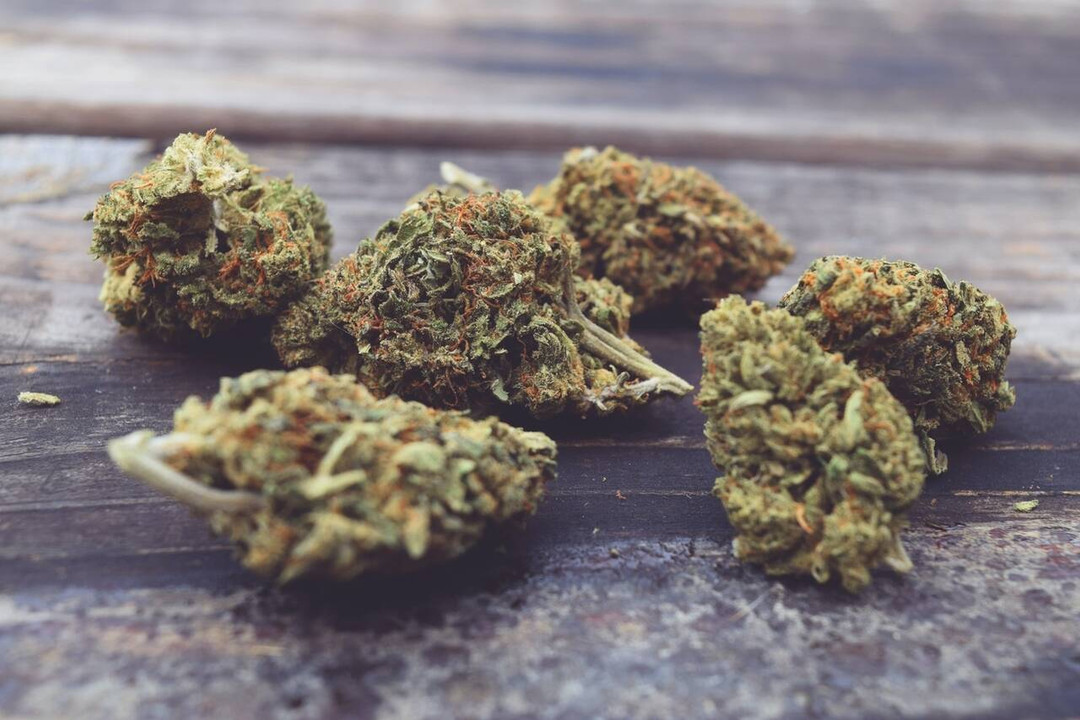What is delta-8 THC? A look at the substance known as ‘diet weed’
What is delta-8 THC? A look at the substance known as ‘diet weed’
Original artical published in The Charlotte Observer by Evan Moore
Although North Carolina has partially decriminalized marijuana possession, the state still prohibits the recreational use of cannabis. A bill introduced in the North Carolina Senate in April that would legalize medical marijuana could become law as early as this year. The proposal includes a list of medical conditions allowed to be treated with marijuana, such cancer, epilepsy and HIV/AIDS.
As the bill sits idle, North Carolinians -- and many across the U.S. -- are turning to a substance often referred to as “marijuana lite” or “diet weed” – delta-8 THC as a fast-growing alternative.
What is Delta 8 THC?
Delta-8 tetrahydrocannabinol, also known as delta-8 THC, is a psychoactive substance found in small traces in hemp and cannabis (marijuana) plants. It’s chemical structure is similar to that of delta-9 THC, the main psychoactive compound found in marijuana.
Does Delta 8 get you "High"?
Like delta-9, delta-8 does produce a euphoric, fuzzy feeling, but it causes a milder high. Other common THC side effects like paranoia, anxiety and drowsiness are also less common when using delta-8.
Is Delta 8 legal in North Carolina?
After hemp was legalized in North Carolina through the 2018 farm bill, delta-8 also became legal. Hemp contains less than 0.3% THC – anything with a higher percentage would be illegal in the state.
How is Delta 8 consumed?
The best way to find your preferred consumption method is to experiment with different forms of delta-8, according to the Center for Advancing Health. Here are some ways to consume delta-8:
Tinctures: Delta-8 tinctures are taken under the tongue. Most people experience effects after 45 minutes to one hour from taking the tincture.
Vaping: Vaping is the best way to take delta-8 if you aim for fast effects, as they can usually be felt within minutes after taking a puff.
Edibles: Gummies are one of the most common forms of delta-8 edibles. The effects typically last longer than vapes, but they can take up to two hours to kick in.
Smoking: Similar to vaping, smoking can be an efficient way to consume delta-8. But because of combustion, you may not be able to extract as much delta-8 from your product as you would from a vape pen.
Capsules: Once swallowed with water, capsules need up to two hours to start working. They are usually odorless and colorless, but the effects may not be as strong as gummies, since the THC doesn’t have a chance to pass through the blood vessels in your mouth.
Topicals: These include salves, creams, lotions and balms. Delta-8 topicals usually won’t get you high unless you use a transdermal product.
What are the benefits of taking Delta 8?
Health experts say delta-8 is suitable for people who don’t enjoy the “intense high that can make you experience anxiety and paranoia” caused by marijuana. Here are some of the other benefits of delta-8 THC: Increase in appetite: Like cannabis, delta-8 produces an appetite boost for people struggling with low appetite and eating disorders.
Better sleep: The effects of delta-8, including stress relief, euphoria and sedation can be helpful for people who have insomnia.
Digestive support: Delta-8 can be used to control nausea and vomiting. Some researchers believe it could be a secondary treatment for the side effects of conventional cancer therapies.
Pain relief: Research has shown that THC relieves chronic pain, which can be useful for those suffering from neuropathy, arthritis, Alzheimer’s disease and multiple sclerosis.
Does Delta 8 have any health risks?
In September, the Food and Drug Administration (FDA) issued a warning on delta-8, stating that the “products have not been evaluated or approved by the FDC for safe uses and may be marketed in ways that put the public health at risk.” The FDA said some products are being marketed as “hemp products,” which may mislead consumers who associate hemp with being non-psychoactive, or unable to produce a “high.” Some delta-8 products are known to have medical or therapeutic uses, but may not have been approved by the FDA. From December 2020 to July 2021, the FDA received reports describing 22 patients who consumed delta-8 products. Of those, 14 were sent to a hospital or emergency room for treatment. Another 19 experienced adverse events after ingesting delta-8, including vomiting, hallucinations, trouble standing and loss of consciousness.
Original article published: 2.10.22 12:05pm by the Charlotte Observer; Author: Evan Moore
Image Description: CBD, Delta 8 and traditional Delta 9 flower are indistinguishable to the naked eye.
Advice & articles
-
Embracing Fall: Harvest Time, Festivals, and the Benefits of Hemp and THCA
Oct 6th 2025As the leaves turn vibrant shades of orange and gold, and the air becomes crisp, fall invites us to
-
Summer Cannabis Vibes
Jul 21st 2025Chill Vibes Only: How Smoking Cannabis Can Help You Relax This Summer There’s something magical abou
-
Veterans and Holistic Healing
May 31st 2024Military and wellness are two concepts that may seem contradictory at first glance, but they are int
- Read more articles




